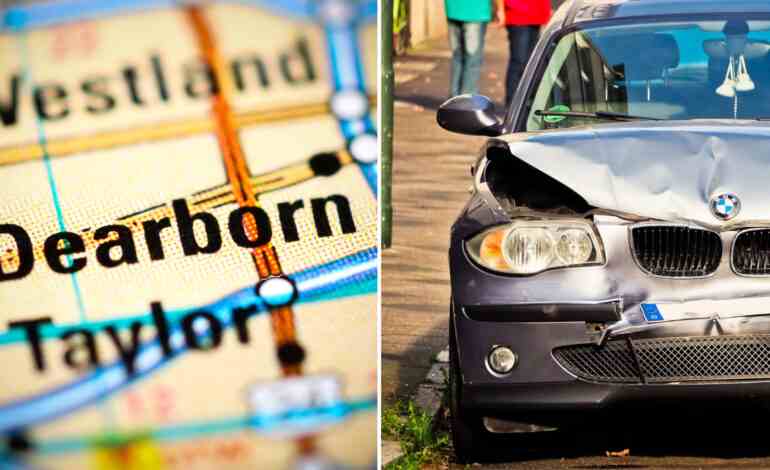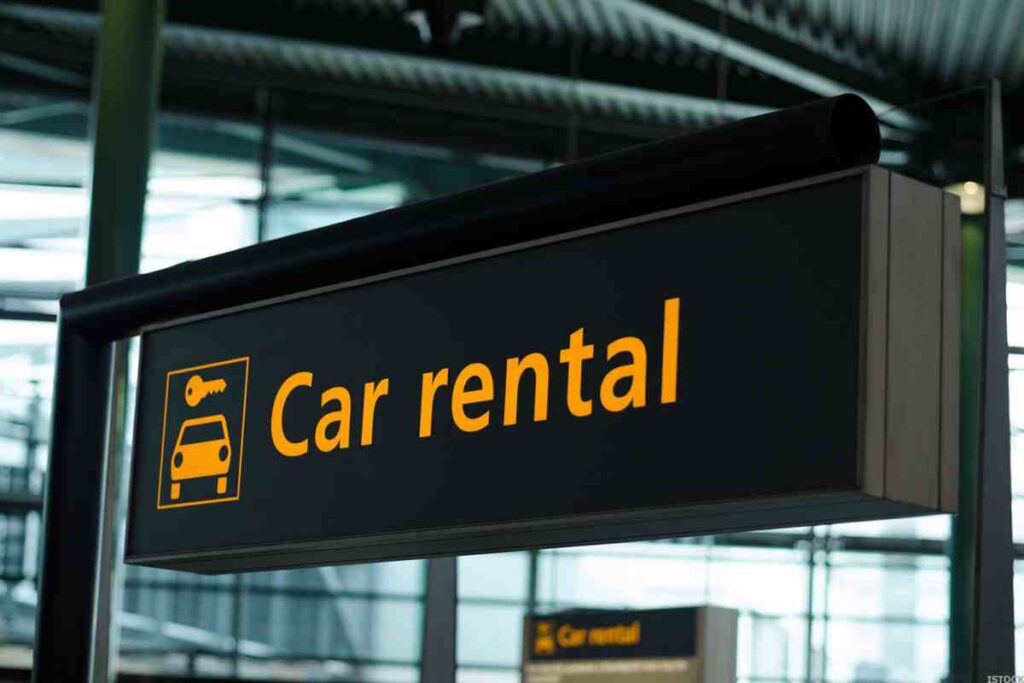Luxury cars are not just modes of transportation; they are symbols of status, achievements, and engineering marvels. With sleek designs, cutting-edge technology, and unparalleled comfort, they offer an experience that goes beyond the ordinary. However, the opulence and sophistication of luxury vehicles come with a price, and this extends beyond the showroom. One of the significant ongoing costs for luxury car owners is insurance. But why do these high-end vehicles command higher premiums?
In this article, we delve into the intricacies of insurance policies for luxury cars, exploring the myriad of factors that contribute to their costlier insurance rates. From the heightened value and repair costs to the increased risk of theft, we will uncover the reasons behind the expensive shield that protects these prized possessions.
Value and Cost of Repairs

The value and cost of repairs for luxury cars are influenced by several factors, which can significantly impact the overall cost of ownership. Here’s a breakdown of these factors:
- Brand and Model Specifics: Luxury brands like Tesla, Lexus, and Acura are often cited for their lower maintenance costs over a decade, while brands like Porsche can incur higher costs due to their engineering complexity.
- Parts and Materials: Luxury cars use premium materials such as aluminum, carbon fiber, titanium, top-grade leather, and rare wood, which are more expensive to replace or repair.
- Complexity and Technology: The advanced technology in luxury cars, including head-up displays, autonomous technology, voice command, radar, and active braking, is costly to develop and install. When these systems require repairs, they are complex to diagnose and fix, leading to higher labor costs.
- Specialized Service: Luxury cars often require specialized service and tools for premium materials and complex systems, which adds to the maintenance bill. Not all repair shops are equipped to handle luxury car repairs, so owners may need to use more expensive dealerships or specialized shops.
- Economies of Scale: The lower production numbers of luxury cars compared to mass-produced models like Toyota or Honda mean that economies of scale don’t apply, making parts per unit more expensive.
- Insurance Costs: The higher cost of repairs also leads to higher insurance premiums, as insurance companies need to cover the potential high expenses of repairing luxury vehicles after accidents or thefts.
Understanding these factors is essential for luxury car owners and potential buyers to anticipate the long-term ownership costs and make informed decisions about their investments.
Theft Rates

Theft rates are a significant factor in the cost of insuring luxury cars. These vehicles are often targeted by thieves due to their high value and the demand for their parts. Luxury cars, with their advanced technology and performance features, are not only attractive for personal use but also on the black market. The Insurance Institute for Highway Safety (IIHS) has noted that luxury vehicles and sports cars frequently rank high on the “most-stolen” list.
One reason for the higher theft rates of luxury cars is their desirability. They often feature the latest technology, such as keyless entry and push-to-start buttons, which can be exploited by thieves using sophisticated equipment. Additionally, the rarity of these vehicles and their parts may make them more appealing to steal, as they can be sold for a substantial profit.
Furthermore, the absence of certain anti-theft features in some models can make them easier targets. For example, a lack of engine immobilizers, which prevent the car from starting without the correct key, has been identified as a contributing factor to increased thefts in some car brands. While many luxury car manufacturers have taken steps to improve security features, the high theft rates continue to influence insurance premiums.
Insurance companies calculate premiums based on risk, and the higher likelihood of theft increases the risk associated with insuring luxury cars. This results in higher insurance costs for owners of these vehicles. To mitigate these costs, car owners can invest in additional security measures and ensure their vehicles are equipped with the latest anti-theft technology.
Insurance Coverage Types
When insuring luxury cars, it’s crucial to consider a range of coverage options to ensure comprehensive protection due to their high value and repair costs. Here are the essential types of insurance coverage for luxury cars:
- Liability Insurance: This is the foundational coverage that pays for the medical expenses and property damage of other parties if you’re at fault in an accident. It’s recommended to purchase as much liability coverage as you can afford, especially if you have significant assets.
- Collision and Comprehensive Insurance: These coverages are vital for luxury cars. Collision insurance covers damage to your car from an accident, while comprehensive insurance covers non-collision-related incidents such as theft, vandalism, or natural disasters.
- Gap or New Car Replacement Insurance: Since luxury cars depreciate quickly, gap insurance can cover the difference between what you owe on the car and its current value if it’s totaled. New car replacement insurance provides you with a new vehicle of the same make and model if your car is totaled.
- Personal Injury Protection (PIP): PIP covers medical expenses, lost wages, and other related costs regardless of who is at fault in the accident. It’s required in some states and optional in others.
- Medical Payments Insurance: This coverage pays for medical or funeral expenses caused by an accident, regardless of fault. It’s beneficial if you don’t have a robust health insurance plan.
- Uninsured/Underinsured Motorist Protection: This protects you if you’re in an accident with a driver who doesn’t have enough insurance or any at all.
These coverages form a robust insurance policy for luxury cars, addressing the unique risks they present. It’s also wise to consult with insurance providers who specialize in luxury vehicles to find the best rates and coverage options tailored to your specific needs.
Specialty Insurers
Specialty insurers are insurance companies that focus on a specific type of insurance or a specific group of people or businesses. In the context of luxury cars, these insurers often provide policies that cater to the unique needs and risks associated with insuring high-value vehicles.
Here are some specialty insurers that are often recommended for luxury car coverage:
- Chubb: Known for its broad coverage and high limits, Chubb is a popular choice for owners of luxury cars.
- AIG: AIG offers a range of coverage options for luxury and classic cars.
- Allstate: Allstate offers insurance policies that can be tailored to suit the needs of luxury car owners.
- Geico’s Collector Car Insurance: This is a specific policy offered by Geico that provides coverage for collectible and luxury cars.
- Liberty Mutual’s Safeco: Safeco, a Liberty Mutual company, offers insurance for a wide range of vehicles, including luxury and classic cars.
- Hagerty: Hagerty is known for its coverage of classic and luxury cars.
- Grundy Insurance: Grundy specializes in insuring collectible automobiles.
- PURE Insurance: PURE stands for Privilege Underwriters Reciprocal Exchange and they specialize in high-value, luxury vehicles.
Each of these companies offers different coverage options and benefits, so it’s important to do your research and choose the one that best fits your needs.
Specialized coverage for luxury cars offers several benefits:
- Ample Protection: Specialized coverage provides comprehensive protection against theft, vandalism, and accidents. It often offers higher replacement values than standard policies.
- Custom Add-Ons: It covers any modifications or custom add-ons to your vehicle. This is particularly beneficial for luxury car owners who have customized their vehicles.
- International Coverage: Specialized coverage often provides additional protection for trips abroad. This is important for luxury car owners who travel internationally.
- Gap Insurance: Luxury car insurance often includes gap insurance, which covers the difference between the car’s value and the amount owed on the lease or loan. This can be particularly beneficial if your luxury car is leased or financed.
- Specialized Repair and Maintenance: Luxury cars require specific tools for repair and maintenance. Specialized coverage ensures that only genuine parts from the original manufacturer are used for replacements. This not only maintains the performance of the car but also its value.
- Peace of Mind: Knowing that your high-value vehicle is properly insured provides peace of mind.
Remember, while specialized coverage may come with a higher premium, the benefits often outweigh the costs, especially when it comes to protecting high-value luxury cars.
How to Get Luxury Car Insurance

Getting luxury car insurance involves a few key steps to ensure you have the right coverage for your high-value vehicle. Here’s a guide to help you through the process:
- Assess Your Coverage Needs: Determine the types of coverage you need, such as liability, collision, comprehensive, gap insurance, and any additional coverage that may be relevant to your luxury car.
- Research Insurers: Look for insurance companies that specialize in luxury vehicles. Companies like State Farm, Travelers, and Progressive are known for insuring luxury cars, while Hagerty, Grundy Insurance, or PURE Insurance are recommended for exotic cars.
- Get Quotes: Obtain quotes from multiple insurers to compare rates. Be sure to provide complete and accurate information about your vehicle and driving history to get the most precise quotes.
- Consider Agreed Value Coverage: Luxury cars can depreciate quickly, so consider policies that offer agreed value coverage, which pays out a pre-determined amount in case of a total loss.
- Evaluate Additional Benefits: Some insurers offer benefits like roadside assistance, coverage for spare parts, or coverage for events related to the luxury car community. Evaluate these benefits as they can add value to your policy.
- Review Policy Terms: Carefully review the terms and conditions of the policy, including deductibles, coverage limits, and exclusions.
- Purchase the Policy: Once you’ve selected the best policy for your needs, complete the purchase. Ensure you have all the necessary documents and information for the insurer.
- Maintain Your Policy: Keep your insurance policy up to date by promptly reporting any changes in your driving situation or vehicle status.
Should I Get My Own Car Insurance or Stay on My Parents?
Remember, when shopping for luxury car insurance, getting personalized quotes is crucial to ensure you’re getting the best deal based on your car, driving history, location, age, and other factors. It’s also advisable to take photos of your car and consider getting it appraised, especially if it’s an exotic model. This can be helpful when discussing the agreed value with your insurer.
Driver Profiles
Driver profiles play a pivotal role in determining the cost of luxury car insurance. Here are some key aspects of driver profiles that insurers consider:
- Age and Driving Experience: Younger drivers and those with less experience tend to have higher insurance rates due to a higher perceived risk of accidents.
- Driving History: A clean driving record can lead to lower premiums, while accidents, traffic violations, and claims can increase rates.
- Credit Score: In many states, a higher credit score can result in lower insurance costs, as it’s associated with responsible financial behavior and a lower risk of filing claims.
- Location: Urban areas with higher rates of vandalism, theft, and accidents often incur higher insurance costs. Conversely, living in a low-risk area can reduce premiums.
- Vehicle Usage: The amount you drive can impact your rates. High mileage increases the chance of accidents, while vehicles used less frequently may qualify for lower rates.
- Marital Status: Married drivers often receive lower rates than single drivers, as they are statistically less likely to be involved in accidents.
- Gender: Some insurers use gender as a factor, with women generally receiving lower rates than men, based on historical accident data.
- Occupation: Certain professions are associated with lower accident rates, which can influence insurance costs.
When insurers evaluate these factors, they’re assessing the likelihood of a claim being made. Since luxury cars are expensive to repair or replace, insurers are particularly cautious and adjust premiums accordingly to mitigate their risk. It’s important to maintain a good driving profile to help manage insurance costs for a luxury car.
FAQs
Q 1. What factors influence the cost of insuring a luxury car?
Ans. The cost of insuring a luxury car is influenced by the car’s market value, repair and replacement costs, theft rates, performance capabilities, and the driver’s profile, including their driving history and demographics. Luxury cars are expensive to repair and replace, and their high-performance nature can lead to higher accident rates, which insurers factor into the premium.
Q 2. How does the choice of deductible affect my luxury car insurance premium?
Ans. The deductible is the amount you pay out-of-pocket before your insurance kicks in. Choosing a higher deductible can lower your premium because you’re assuming more of the financial risk. However, it’s important to choose a deductible that you can comfortably afford in the event of a claim.
Q 3. What should I do if my luxury car is involved in an accident?
Ans. If your luxury car is involved in an accident, you should immediately contact your insurance provider to report the incident. Additionally, document the scene with photos, exchange information with the other party if applicable, and follow the instructions provided by your insurer for claims processing.
Q 4. Does luxury car insurance cover international travel?
Ans. Coverage for international travel varies by insurer and policy. Some policies may offer international coverage, while others may require you to purchase additional protection. Always check with your insurer before traveling abroad to ensure you have the necessary coverage.
Conclusion
In conclusion, insuring a luxury car is a multifaceted process that requires careful consideration of various factors. From the higher repair and replacement costs to the increased risk of theft, luxury vehicles inherently come with higher insurance premiums. However, by understanding the essential types of coverage, considering specialty insurers, and maintaining a favorable driver profile, owners can ensure they have the necessary protection without overpaying.
It’s also important to regularly review and adjust coverage as circumstances change. Ultimately, the right insurance not only safeguards the financial investment in a luxury car but also provides peace of mind, allowing owners to fully enjoy the prestige and performance of their vehicles.

Join Shubham, a finance enthusiast with a mission to empower readers with the knowledge and tools to achieve financial freedom. Discover smart financial advice and unlock your financial potential.


